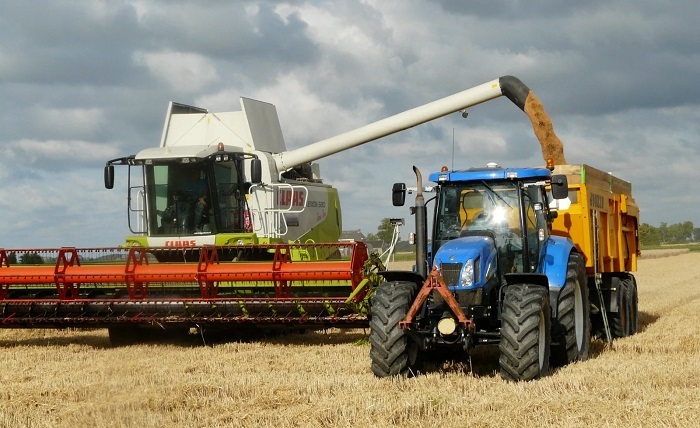Heavy farming equipment is the backbone of modern agriculture, playing a crucial role in ensuring productivity and efficiency on the farm. However, the demands placed on this machinery are immense, and without proper care and maintenance, even the most robust equipment can suffer from premature wear and tear. To maximize the longevity of your heavy farming equipment, here are essential care tips that every farmer should implement.
1. Routine Inspections
One of the most effective ways to maintain your equipment is through regular inspections. Schedule daily or weekly checks depending on usage. Look for signs of wear and tear, such as loose bolts, leaks, and unusual sounds during operation. Keeping a maintenance log can help you track the condition of each piece of equipment and identify patterns over time.
2. Follow the Manufacturer’s Maintenance Schedule
Every piece of heavy farming equipment comes with a manufacturer’s maintenance manual, detailing specific care routines, recommended service intervals, and parts replacement schedules. Adhering to these guidelines is crucial for preventing mechanical failures and ensuring your equipment operates at peak performance. Regular service checks will help you catch potential issues early before they lead to costly repairs.
3. Keep it Clean
Dirt, dust, and debris can accumulate on heavy equipment, leading to mechanical problems and increased wear. After each use, take the time to clean your machines, paying special attention to the undercarriage, filters, and cooling systems. Use a pressure washer to remove stubborn dirt but avoid spraying directly on electrical components. Regular cleaning not only keeps your equipment looking good but also helps it perform better.
4. Lubrication is Key
Proper lubrication is essential for reducing friction between moving parts, which can lead to overheating and premature wear. Invest in high-quality lubricants and ensure that all grease points are serviced regularly. Keep an eye on the oil levels in engines and hydraulic systems, and change the oil as recommended by the manufacturer. A well-lubricated machine runs smoother and lasts longer.
5. Monitor Fluid Levels
Apart from oil, other fluids play vital roles in the functionality of your equipment, including hydraulic fluid, coolant, and transmission fluid. Regularly check and top off these fluids to prevent overheating and mechanical failure. Using the wrong type of fluid can cause damage, so always refer to the manufacturer’s specifications for fluid types and capacities.
6. Store Equipment Properly
When your farming equipment is not in use, proper storage is crucial for maximizing its lifespan. Ideally, store machinery in a dry, sheltered area to safeguard it from environmental damage. If outdoor storage is necessary, utilize tarps or covers to shield the equipment from rain, snow, and UV rays.
Additionally, elevating the machinery off the ground can help prevent rust and corrosion. For transporting equipment safely across Colorado, consider using heavy haul trucking services, which can ensure that your machinery reaches its destination securely while minimizing exposure to the elements during transit.
7. Practice Safe Operation
Improper operation is a leading cause of equipment damage. Train all operators on proper usage techniques and safety protocols. Encourage a culture of safety and responsibility when handling heavy machinery. Avoid overloading your equipment and adhere to weight limits to prevent strain on the machinery.
8. Pay Attention to Tires and Tracks
For wheeled equipment, maintaining proper tire pressure is essential for performance and longevity. Underinflated tires can cause excessive wear, while overinflated ones may lead to blowouts. Inspect the tread for signs of wear and replace tires when necessary. For tracked machinery, check the tracks for proper tension and wear, making adjustments as needed to prevent uneven wear.
9. Implement Seasonal Maintenance
Seasonal maintenance checks are crucial, especially before planting or harvesting seasons. These checks can include thorough inspections, oil changes, and equipment upgrades. Prepare a checklist of items to inspect, such as belts, hoses, and cutting edges, to ensure everything is in working order before the peak operational periods.
10. Educate and Train Your Team
Investing in training for your team can pay dividends in the long run. Ensure that all operators understand the equipment’s operational guidelines and maintenance routines. Conduct regular workshops or training sessions to keep everyone updated on best practices. A knowledgeable team can quickly identify potential problems, reducing the risk of costly downtime.
In Conclusion
Caring for heavy farming equipment is not just about ensuring it runs smoothly; it’s an investment in the future productivity of your farm. By implementing these essential care tips, you can maximize the longevity of your machinery, reduce repair costs, and maintain efficiency on your farm. Remember, regular maintenance not only protects your investment but also contributes to the overall success of your agricultural operations.






